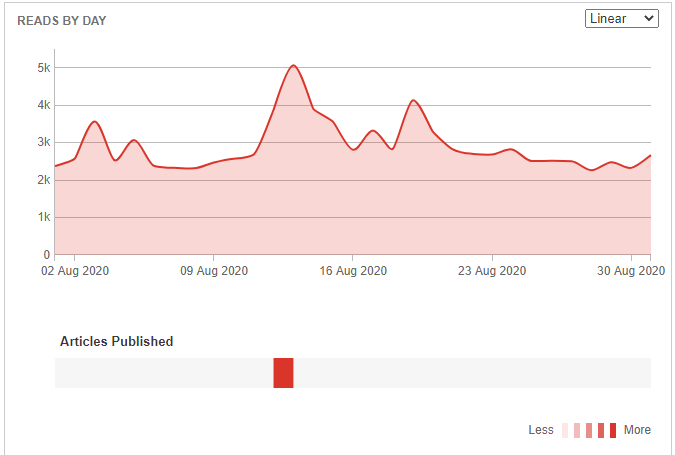The UNE Communications Unit is hosting a virtual event on “How to write for The Conversation” for all academics and researchers on Monday, 14 September at 11:30am via Zoom.
The Conversation (TC) is one of Australia’s largest, independent news and commentary outlets. It specialises in sourcing news from the academic and research community and delivering it directly to the public. Writing for TC is a proven and effective means to raise your academic profile as articles are free to read and freely shared under Creative Commons. For example a recent article on giant sea scorpions, co-authored by Dr Russell Bicknell, had over 72,000 reads.
During the webinar you will receive information on:
- The benefits of writing for TC;
- Pro tips on when and how to pitch an idea to TC;
- How to tailor your writing to your audience; and
- Have opportunity to ask questions.
The webinar is scheduled for Monday, 14 September from 11:30am – 12:30pm.
Academics can also choose to meet with the editor, Sunanda (Sunny) Creagh, individually via Zoom, to discuss their research in more detail. There are still some individual sessions available on Tuesday, 15 September between 9am and 3pm.
Please contact eboshoff@une.edu.au for the webinar link or to book an individual appointment.
More on writing for The Conversation
The Conversation’s unique republication model and lack of paywalls, its large engaged audience, along with their intensive editorial model that provides academics with final say before publication, makes The Conversation an important and influential media platform for universities.
This is backed up by recent research which found The Conversation amplifies quality research and plays a vital role in the impact and engagement landscape. The study showed academics and researchers secure the following benefits by publishing with The Conversation:
- Connects researchers directly with the public, practitioners and key decision-makers and extends influence beyond academia.
- Experienced editors help translate research so it engages and connects with a general audience.
- Allows academics to communicate current research on topical issues in a timely fashion.
- Adds value to research outputs by amplifying their impact on public debate.
- Fulfills an ethical imperative to disseminate evidence-based research.
- The open model promotes republication and increases reach and engagement.
- Provides pathway to other national and international mainstream media.
- Ties into the social media ecosystem where debates are happening.
- Altmetrics offer a new way of measuring impact and engagement with research.
- The writing skills academics gain translate to writing in other forums: journal articles are clearer and grant writing more compelling.
- Academics have final say before publication, unlike traditional media outlets where editors retain final control.

